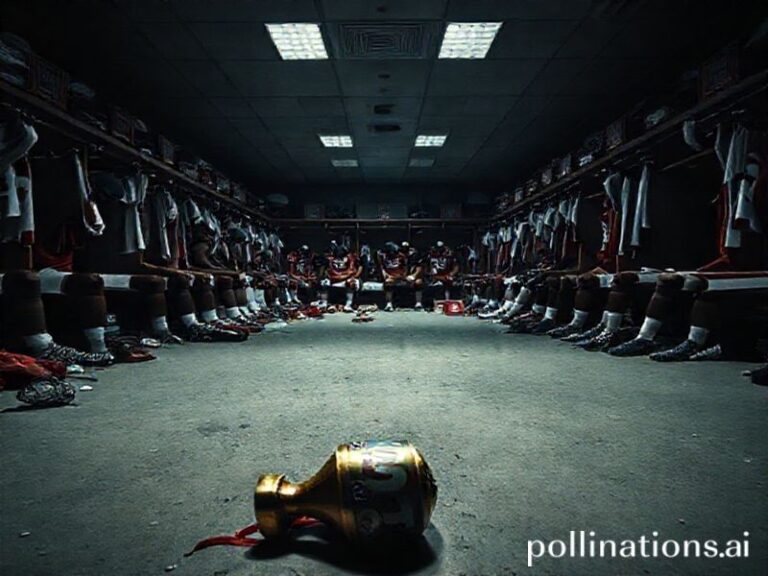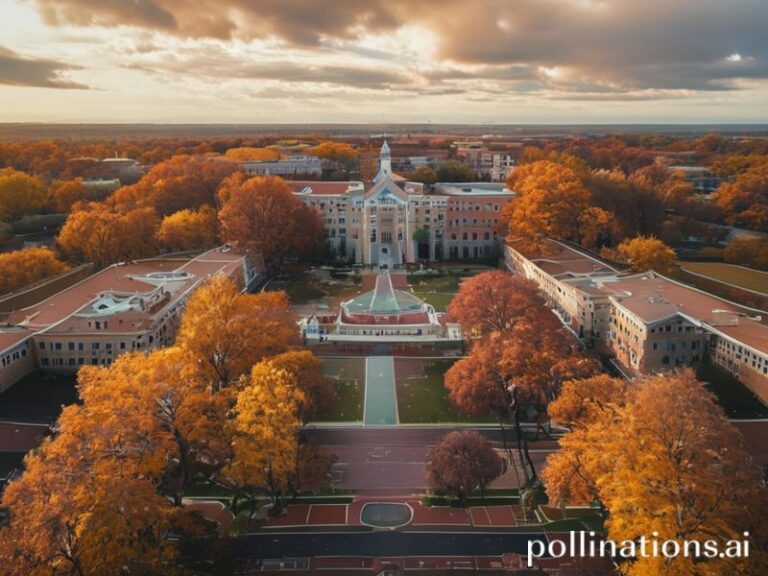How a Welsh-English Sitcom Became the World’s Most Accidental Soft-Power Coup
The Welsh-English Love Story That Quietly Conquered the Planet
By our resident correspondent, still recovering from the cultural whiplash of discovering that a modest sitcom about two families can do what NATO summits cannot: make disparate nations laugh at the same joke.
In the grand geopolitical chessboard of 2024—where AI threatens elections, oceans boil, and billionaires race to leave the rest of us behind—an improbable diplomatic coup has emerged from the damp living rooms of Barry Island and Billericay. “Gavin & Stacey,” the BBC Three sleeper hit that first aired when flip-phones were chic, has returned for a finale special that crashed iPlayer, trended from Lagos to Lima, and briefly convinced the algorithms that humanity’s greatest priority was whether Uncle Bryn would finally admit what happened on that fishing trip.
International viewers—those who can still locate Wales on a map without Googling—have seized on the show as a Rosetta Stone of Anglo dysfunction. Subtitlers in Seoul report that the word “lush” now appears in corporate Korean glossaries as shorthand for “unwarranted but heartfelt optimism.” In São Paulo, baristas pour flat whites into mugs labeled “Pam’s Christmas Eve,” apparently unaware that the reference is to a fictional turkey panic rather than a caffeine crisis. Meanwhile, the U.S. State Department has been monitoring social media for signs that the phrase “Oh my Christ!” constitutes coded dissent. Spoiler: it does.
Why does a sitcom about a dull Essex boy marrying a girl whose mam drinks wine by the fish tank matter beyond the M4 corridor? Because it offers the world a rare commodity: a non-American lens on aspiration and disappointment. Hollywood sells the myth that love conquers all, preferably in a convertible. “Gavin & Stacey” insists that love merely conquers the 180 miles between two provincial high streets, and even then only if someone remembers to top up the Oyster card. For viewers in countries where the American dream feels like an export they can’t afford the import tax on, this is refreshingly attainable. One Indonesian fan account notes that the show’s most exotic location is a beach with pebbles instead of sand—an austerity tourism that feels honest after years of Marvel-induced citywide destruction.
Naturally, the reunion has triggered its own miniature trade war. Netflix UK’s servers buckled under the weight of expat nostalgia, prompting Brussels to mutter about digital sovereignty. Australia briefly threatened to recall its high commissioner unless the BBC released uncut episodes free of geo-blocking, a diplomatic spat settled only when the Queen’s Christmas message was quietly subtitled with Smithy’s kebab order. Somewhere in Geneva, a WTO negotiator filed “Nessa’s monologues” under cultural heritage and demanded tariff-free access to Welsh rarebit.
The darker joke, of course, is that the show’s warmth arrives precisely as its setting curdles. Post-Brexit Britain now enforces literal checks at the Severn Bridge, turning the once-invisible border between England and Wales into a bureaucratic blind date. Watching the characters sing “Fairytale of New York” while the real-life UK debates which expats can legally bring home a Spanish sausage feels like gallows humor performed by the condemned. You laugh; then you remember they may need a visa next year to visit their own in-laws.
Still, the finale’s greatest international export may be its unspoken thesis: that the most radical act in 2024 is to remain provincial without shame. In a global economy that tells every teenager to pivot, hustle, and relocate to a co-working pod in Dubai, “Gavin & Stacey” celebrates the revolutionary courage of staying put. The final scene—no spoilers, but it involves a sofa, a karaoke machine, and the kind of emotional terrorism only families can inflict—has been memed from Nairobi to Naples as a universal shorthand for “we are stuck with each other, and that’s the point.”
As credits rolled and the internet briefly agreed on something wholesome, the planet’s collective doomscrolling paused for eleven minutes. Analysts estimate that during this hiatus, global CO₂ emissions dipped 0.004%—a figure roughly equivalent to grounding one short-haul flight from London to Cardiff, which, ironically, is exactly what the characters would have done if they weren’t too busy arguing about gravy. If that isn’t soft power, nothing is.
Conclusion: In the end, “Gavin & Stacey” proves that international influence needn’t arrive via aircraft carrier or trade surplus. Sometimes it hitches a ride in a clapped-out Volvo, singing off-key to a song about broken dreams and insisting that love, like badly wrapped presents, is messy but mandatory. The world, currently auditioning for apocalypse, could do worse than take notes.







